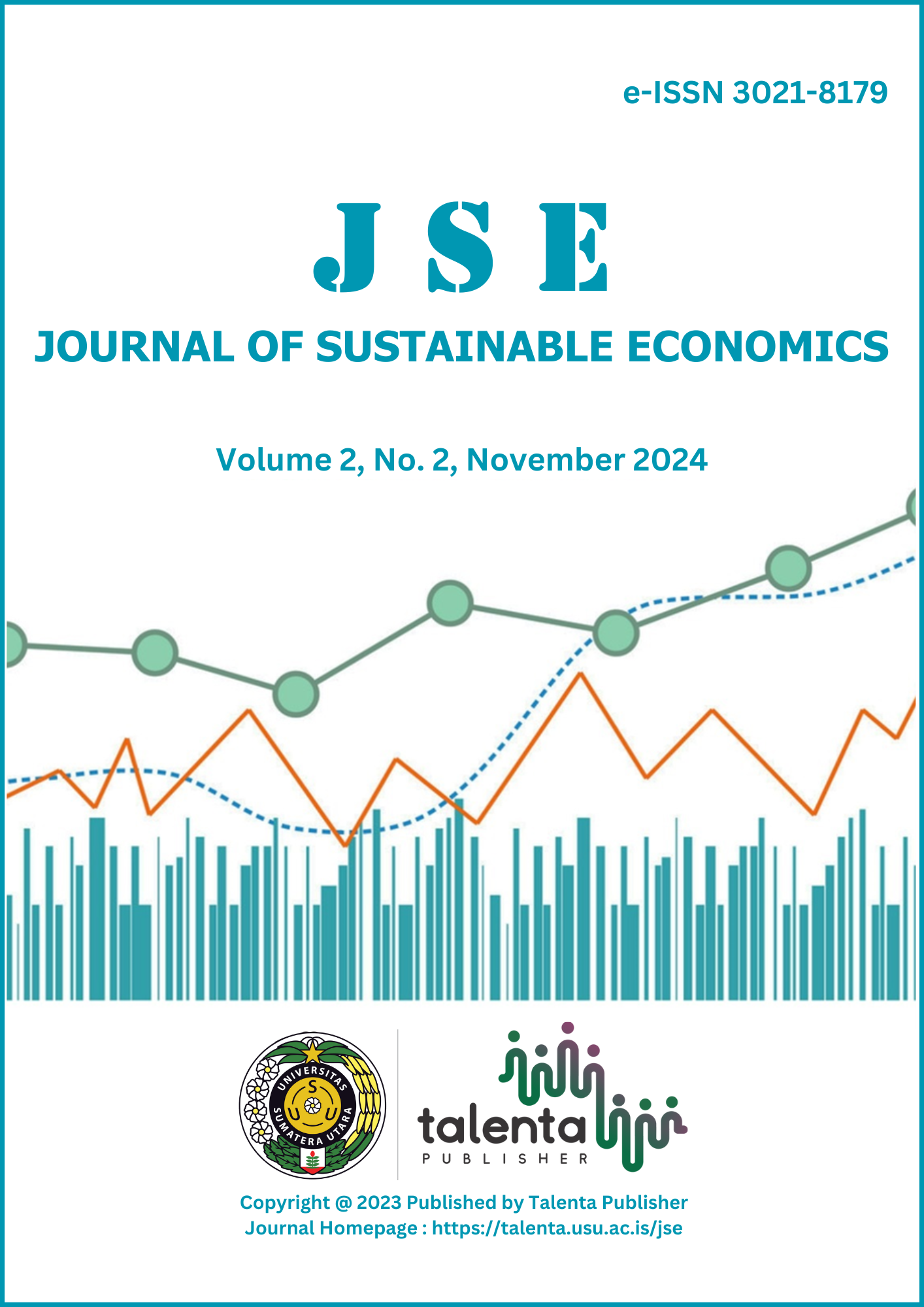Beyond the Neoclassical Approach Addressing Income Inequality in Indonesia Through Institutional Economics
DOI:
https://doi.org/10.32734/jse.v2i2.18923Keywords:
income inequality, culture, economic crisis, externalities, collectivismAbstract
Indonesia is a developing country that still has many economic development problems. Income inequality is one such problem. In the Cold War era, many countries, including Indonesia, began to adopt the neoclassical economic system used by the West to stem the influence of Soviet communism. Unfortunately, much literature states that the neoclassical school of economics creates a wide curtain between the rich and the poor. Income inequality is a problem that can lead to social unrest, and it was proven that in 1997/1998, there was a multidimensional crisis caused by this widening inequality. The ability of neoclassical economics to answer Indonesia's economic challenges is starting to be doubted. This is due to quite complex problems in the structure of Indonesian society, which still adheres closely to local culture, norms, and customs in carrying out its economic activities. Adopting a new institutional economic system is deemed more appropriate to address the challenges of income inequality in Indonesia than the neoclassical economic system. The new institutional economic system is able to explain that differences in culture, societal structure, and norms will shape different economic behavior, so the role of institutions and externalities is needed to support this form of economic behavior. In this article, we will explain the condition of income inequality in Indonesia, the use of neoclassical schools of thought in developing countries such as Indonesia, and the role of new institutional economics in explaining the problem of income inequality in Indonesia.
Downloads
Downloads
Published
How to Cite
Issue
Section
License
Copyright (c) 2024 Journal of Sustainable Economics

This work is licensed under a Creative Commons Attribution-ShareAlike 4.0 International License.













